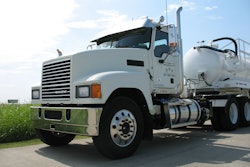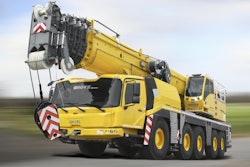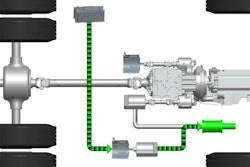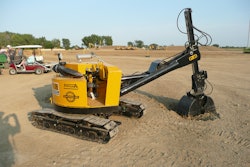Fiat Chrysler Automobiles (FCA) and CNH Industrial – Official Global Partners of Expo Milano 2015 and European leaders in natural gas engine technology – announce a new partnership with Air Liquide, world leader in gases, technologies and services for industry and health. Together with Air Liquide, FCA and CNH Industrial have launched a project at Expo to promote the introduction of biomethane throughout infrastructure networks in Europe. Presently, in Italy, biomethane is still not accessible as a fuel to the public.
At Expo 2015, the central theme "Feeding the Planet, Energy for Life" is interpreted by both companies as an act of making informed choices, promoting sustainable lifestyles, using the latest technologies and finding a balance between availability and consumption of resources. FCA has provided a fleet of vehicles that includes 50 Fiat 500L Natural Power (methane/petrol) vehicles. These vehicles are to be used by the delegations of the participating countries for car sharing activities. CNH Industrial's Iveco Bus brand has provided a fleet of seven Urbanway 12-meter buses powered by environmentally-friendly compressed natural gas (CNG) engines. These will be used for visitor transportation within the Expo site. All of these vehicles are also equipped to run on biomethane.
CNH Industrial brand New Holland Agriculture is also present as the only agricultural machinery manufacturer with its own pavilion at Expo, showcasing the Sustainable farm with a biomethane tractor positioned on the roof of the building.
The aim of the project in collaboration with Air Liquide is to demonstrate the potential environmental benefits generated from the use of biomethane. FCA and CNH Industrial will promote the introduction of biomethane throughout Europe's natural gas distribution infrastructure network. This quantity of biomethane is equivalent to approximately 70,000 m3 worth of natural gas for Fiat vehicles and 270,000 m3 for the buses provided by Iveco Bus at Expo 2015. By using these quantities of biomethane in the place of natural gas, over 100 tonnes of CO2 can be saved, which is equal to the absorption of a forest composed of 140 trees throughout their life span.
While a vehicle fueled by natural gas already offers important environmental benefits (reduction in CO2 and other polluting emissions), the project spotlights how the use of biomethane has the potential to be even more sustainable: considering a well-to-wheel perspective, a vehicle powered by biomethane derived from agricultural waste, food or animal waste, produces CO2 emissions which are comparable to that of an electric vehicle fueled using energy produced from renewable sources.
"FCA started investing in natural gas vehicles in the 1990s and has since been the leader in Europe, having sold over 650,000 vehicles to date. Today we are at a turning point where the combination of natural gas, a concrete solution for sustainable mobility, and biomethane, a renewable source, can bring immediate benefits for the environment. In addition, these alternative fuels can also benefit urban mobility, municipalities and at the same time help develop local economies," says Daniele Chiari FCA - EMEA Region – Head of Product Planning & Institutional Relations.
"Biomethane represents a clear solution for mobility that uses renewable sources to support it. CNH Industrial has long promoted the use of biomethane which brings benefits in both environmental and economic terms. Iveco and Iveco Bus already offer a range of vehicles which run on natural gas that can already be fuelled using biomethane. To date, our company has sold more than 24,000 natural gas engines and 14,000 natural gas commercial vehicles," says Sylvain Blaise Head of Iveco Bus at CNH Industrial.
Both FCA and CNH Industrial are committed to providing sustainable mobility solutions for the various sectors in which they operate from private and collective passenger transport to freight and agricultural applications. In the field of agriculture, CNH Industrial, through its brand New Holland Agriculture, has promoted its Clean Energy Leader strategy since 2006 in order to research viable alternatives to diesel such as biodiesel, biomass and biomethane. This goes hand in hand with New Holland's focus on developing the concept of the Energy Independent Farm, where agricultural waste is recycled to contribute to the production of alternative fuel for the machinery and vehicles which operate on the fields.
These solutions must be practical as well as bring forth benefits in terms of environmental sustainability. In order to achieve these goals, the companies actively work to involve all aspects of their respective supply chains in order to ensure an integrated approach with the commitment of all stakeholders.
"The Air Liquide Group is innovating and developing solutions for responsible mobility based on renewable gas-based fuels such as hydrogen and natural gas for vehicles (compressed natural gas or liquefied natural gas). Air Liquide masters the entire chain, from the production of biomethane to purification, liquefaction and the distribution of Bio-CNG via the infrastructure that the Group is currently rolling out, across Europe in particular," says Pierre Etienne Franc, Air Liquide Vice President, advanced Business and Technologies (aB&T).



















